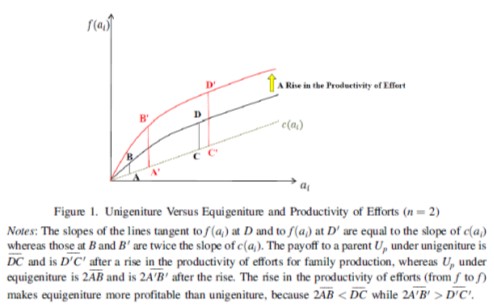
ABSTRACT
Observed bequest patterns of widely diverse societies are polarized into unigeniture (giving all to one child) and equigeniture (dividing bequests equally). Over time, inheritance custom evolves from unigeniture to equigeniture. To explain these two observations, this paper proposes a model of bequest behavior that a parent cares welfare of his children while he wants them to expend costly and unverifiable efforts for family. All the stable equilibrium inheritance customs comprise unigeniture and equigeniture only, being consistent with the observed polarization. Moreover, a rise in the productivity of efforts for family can cause the evolution to equigeniture from unigeniture.
KEYWORDS
Unigeniture; Equigeniture; Bequest motive
JEL CLASSIFICATION
D13, D64, D31
Singapore Economic Review
https://www.worldscientific.com/doi/10.1142/S0217590819500127
